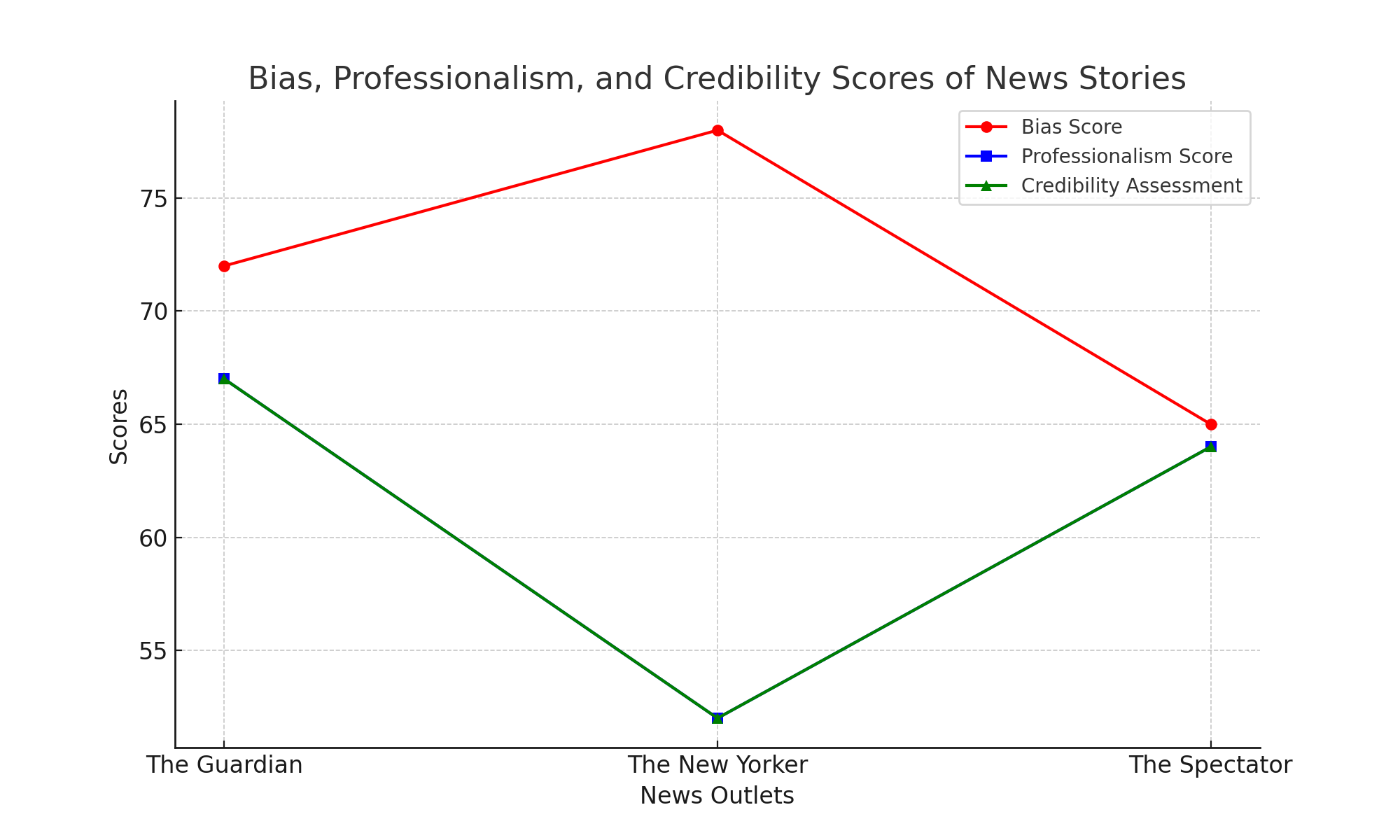Trump said Zelenskyy 'does not have the cards'. But how well is he playing his own hand?
- Characterizes Trump-Zelenskyy meeting as "more than just a diplomatic disaster"
- Claims the meeting marks "the end of international politics as we know it"
- Argues Trump's foreign policy is "defined by unpredictability, quick gains and self-interest"
- Suggests Trump is "uninterested in confronting aggressors"
- Written by a political researcher who specializes in political violence and repressive regimes
- Article presents opinion as fact in several instances
- One-sided framing of complex geopolitical situations
- Minimal presentation of alternative perspectives
- Clear emotional language used throughout
- Opinion piece properly labeled as "commentisfree" in URL
- Author's credentials are relevant but suggest potential perspective bias
This opinion piece demonstrates clear left-leaning bias in its characterization of Trump's foreign policy and the Ukraine situation. While the author has relevant expertise (political violence researcher), the article uses emotionally charged language, presents opinions as facts, and offers minimal space to alternative viewpoints. It employs catastrophic framing ("end of international politics as we know it") and assumes motivations without substantiation. The piece is properly labeled as opinion in the URL, but the analysis shows significant bias in framing, word choice, and selective evidence presentation.
Bias Score Factors
This website generally maintains basic standards of credibility and transparency—with significant exceptions. While the article is clearly marked as opinion and the author has relevant credentials, it presents numerous opinions as facts and uses emotionally charged language that reduces objectivity.
It Took Trump Only Twenty-four Days to Sell Out Ukraine
- Claims Trump has "executed a breathtaking pivot toward Moscow" within first month in office
- Characterizes Trump's actions as "selling out Ukraine" to Putin
- Draws parallel to Neville Chamberlain's appeasement of Hitler
- Presents Trump as deliberately humiliating Ukraine's president
- Focuses on alleged foreign policy damage done in Trump's first 24 days in office
- Headline uses inflammatory language ("sell out")
- One-sided presentation of complex geopolitical situation
- Lacks balance in source selection (only quotes critics)
- Uses historical comparison (Chamberlain/Hitler) that heightens emotional impact
- Presents speculative interpretations of motivations as factual
- Lack of policy detail or substantive analysis of strategic considerations
This article demonstrates strong left-leaning bias in its portrayal of Trump's foreign policy toward Ukraine. While it contains factual elements about events that occurred, it consistently frames these events in the most negative light possible, uses emotionally charged language, and presents speculative interpretations of motivations as facts. The piece relies heavily on quotes from Trump critics while offering minimal context for policy decisions. The headline itself ("sell out Ukraine") reveals clear bias in framing. While opinion content is expected to present a viewpoint, this piece blurs the line between news reporting and opinion through its tone and presentation.
Bias Score Factors
This article is unreliable because it fails to adhere to several basic journalistic standards. While it contains factual elements about events that occurred, it consistently presents opinions as facts, uses heavily loaded language, attributes motives without evidence, and lacks balance in source selection. The analysis suggests the piece serves more as advocacy than objective journalism.
Zelensky knew who he was dealing with. And he misstepped
- Frames the Trump-Zelensky meeting as an "epochal diplomatic train wreck"
- Emphasizes the high stakes of the meeting for Ukraine's future
- Suggests Zelensky failed in his objective to repair relations with Trump
- Notes the planned joint press conference was canceled
- Mentions Trump's subsequent critical social media post about Zelensky
- Article places the primary responsibility for the meeting's outcome on Zelensky
- Headline directly assigns blame to Zelensky for "misstepping"
- Little context provided about broader diplomatic landscape
- Dramatic language ("epochal," "catastrophic") heightens emotional impact
- Limited discussion of Trump's role or responsibility in the interaction
- The article provides some factual details about the meeting
This article demonstrates moderate right-leaning bias in its framing of the Trump-Zelensky meeting. The analysis reveals a tendency to place responsibility for the meeting's outcome primarily on Zelensky while offering limited critical assessment of Trump's role. The headline directly assigns blame to Zelensky for "misstepping," establishing this frame from the outset. The article uses emotionally charged language ("epochal diplomatic train wreck") and presents opinion as fact regarding what Zelensky's objectives should have been. While it contains factual elements about events that occurred, the framing, word choice, and perspective show a clear bias in how the information is presented.
Bias Score Factors
This article generally maintains basic standards of credibility and transparency—with significant exceptions. While it presents some factual information about the meeting, it frames the events with clear bias, presents opinions as facts, uses emotionally charged language, and assigns blame in a one-sided manner. The article would benefit from more balanced context and consideration of multiple perspectives on the diplomatic situation.
